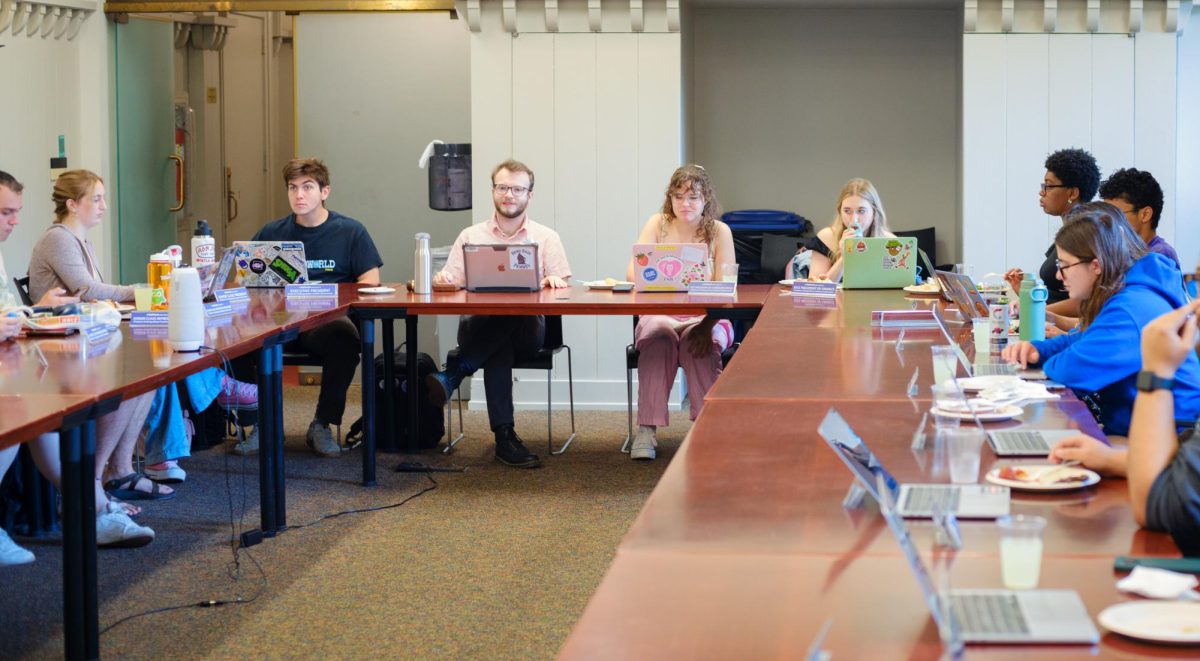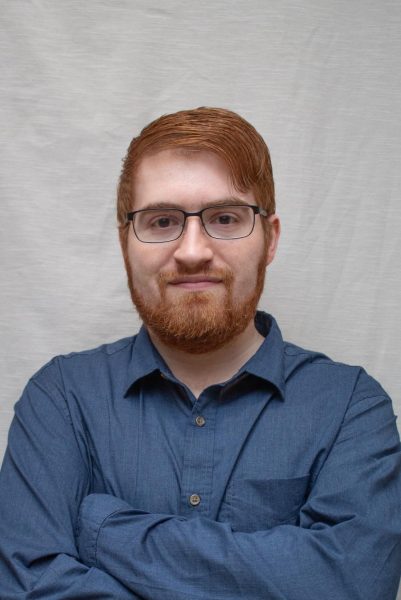As a member of Chatham Student Government for three years, I have worked with incredible peers, helped to improve our internal structures, professionalized our organization and introduced important legislation, including a resolution supporting Chatham Faculty United. I’ve risen through the ranks, currently concluding my term as the executive vice president, the second highest position in our structure. I’m proud to be a CSG member and to have improved our organization, but I think we need to face the uncomfortable truth: CSG isn’t quite working.
That’s not the fault of any member; to the contrary, I believe many CSG members, current and former, have done great work and have advanced numerous student causes — from addressing problems at Anderson Dining Hall to the challenges posed by current financial circumstances.
The problem is, at its core, CSG hasn’t changed to meet our evolving campus culture or institute the means to effectively address the challenges at the University. It’s a fundamental error and one that requires us to re-evaluate our structure and identity.
Firstly, Chatham isn’t the same institution we were ten years ago. For one, we are now a gender-inclusive school, and our class sizes have rapidly expanded. Our classes are also much-more amorphous — many students graduate in three or five years, for instance. I’m one such student; I entered with the class of 2025 but am now graduating with the class of 2024. As such, classes have become a much less salient identity on campus. Besides our first-year, how often have we done things as a class?
And yet, CSG is still organized in that way: senators are elected by class and serve on their respective class boards. This structure made sense a decade ago. It doesn’t today. Other identities and ways of grouping ourselves — for instance, by major, type of campus involvement (e.g., student athlete), and type of student (e.g., transfer or commuter) — have become paramount. CSG should reflect such.
The Senate could be reformed to be elected by various student constituencies. There could be senators representing certain majors or major groupings, a senator for transfer students, a commuter senator and a student athlete senator. In this structure, the class boards would be eliminated as separate entities.
Besides being unrepresentative, the class boards also create a problem of fractionalization, with too many bodies with too many overlapping responsibilities. CSG must be able to quickly and efficiently address developing issues on campus. Unfortunately, that is not always the case.
At times, our organization gets bogged down in inter-governmental disputes between the Executive Board and the Senate. Additionally, we have numerous overlapping groupings of members: for instance, we currently have both committees and class boards.
While having some subgroups is undoubtedly a good thing — committees, for instance, allow certain issues to gain additional attention — it also creates some unnecessary complications in terms of diffuse leadership. Eliminating class boards goes a long way toward simplifying this structure.
And for CSG, the buck needs to stop somewhere. There needs to be someone who has final say to quickly address, if need be, issues at Chatham on behalf of the student body. The executive president, with the advice of the Executive Board, should serve this role. These members are the only ones elected by the entire student body, and as such, they represent all students on campus — something the Senate cannot say.
The executive branch of CSG ought to be properly empowered. The exact structure of this could vary. For example, the Executive Board could become the sole executive and legislative body such as is done at the University of Pittsburgh. This structure would also reduce the number of open seats during elections, a common problem with our current system.
On the other hand, the Senate, if it is to exist, could retain specific legislative functions, such as approving legislation and the budget, while other powers are placed with the Executive Board. Regardless of what structure it would take, the end would be the same: a small and nimble body able to quickly react and make change.
Finally, part of that empowerment for CSG should be an increased role in the shared governance structures here at Chatham for students. Our university is most successful when built upon mutual respect and true shared governance in our relations among the various groups which make our campus work — administrators, faculty, staff and students. CSG ought to be part of that process.
I am immensely pleased to hear President Rhonda Phillips’s commitment to improving shared governance on campus, and I believe CSG should play an active role in advocating for increased student representation in those processes. Students should have a seat at the table in every decision which affects them.
Our perspective, experiences and ideas differ from others because we are the beneficiaries of the decisions made. We know what works and what doesn’t, as well as what problems there may be — including those others can’t see — because we are students. Having an active place for students will help our university by channeling these perspectives in a productive way.
CSG is best poised to facilitate this transition. An empowered Executive President could serve on the University Committee or the Board of Trustees, and they could retain the authority to appoint members to other important campus committees. In fact, CSG’s committees could be aligned with the University’s to facilitate this, creating a streamlined structure.
Taken together, these measures — simplifying CSG’s structure and increasing representation by eliminating class boards, empowering the Executive Board and advancing a vision of shared governance — present an alternative and bright vision for CSG.
CSG is the representative body of students on campus. When the University looks for student feedback, CSG is the first asked. When students have a concern, CSG can gain an audience to address them. We are the only student group with that institutional power.
In my time at Chatham, I have worked to improve CSG’s ability to function as an effective and representational body. Our meetings are now productive and action-oriented, we now credibly express student opinion in the form of legislation, and we have improved relations with faculty and staff. Now, it is time for us to embark on the next leg of this journey and create a CSG that works for everyone.
Chatham community members can submit Guest Voices pieces to the Communiqué by reaching out to the Communiqué’s Opinion Editor Abigail Hakas at abigail.hakas@chatham.edu.



